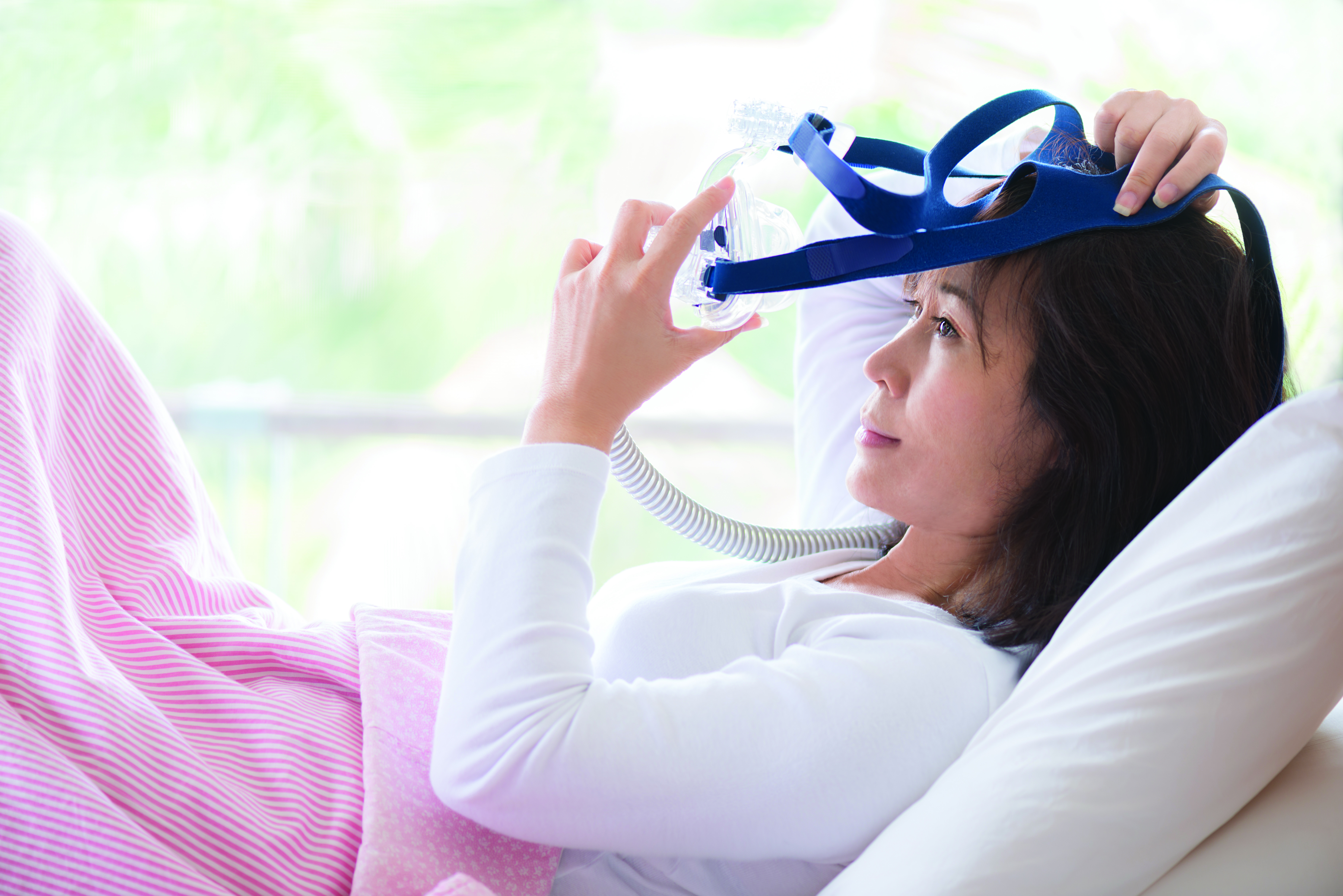Sleep Interrupted
We talk to a sleep expert about sleep apnea, a condition that is alarmingly becoming more and more common as we try to keep up with our increasingly hectic lifestyles
The condition is so common, in fact, that one in three Singaporeans suffers from moderate to severe sleep apnea, while the global statistic is estimated at one in five, according to Ms Hencel Torres of Snore Solutions International, a company that helps people with their sleeping problems. “It blows my mind that sleep – and how to help people get more of it – is not studied more,” says Torres, a sleep expert who has made it her mission to help patients get more zzz’s. Lack of sleep or poor sleep, after all, has been proven to directly affect our health and lifestyle.
Sleep apnea is essentially a condition in which a person stops breathing while sleeping. “Apnea literally means absence of breath,” explains Torres. “It happens when the throat muscles relax too much that it closes the airway,” she says. “Once the passageway is blocked, the person isn’t getting enough oxygen, basically.”
The lack of oxygen will cause the person to wake up, gasping or choking for air. It’s a vicious cycle: Once the person gets enough oxygen in, he falls asleep, his muscles relax, collapsing the airways, which leads to oxygen deprivation, which makes the person wake up. Most sleepers won’t even be aware that their sleep gets interrupted, says Torres. And on the face of it, it might not seem like a big deal. After all, if you fall back asleep immediately anyway, what’s the big harm in waking up briefly.
The many problems of sleep deprivation
Plenty, it turns out, says Torres. “Even if it’s a mere second, and you won’t feel yourself waking up, add up those interruptions, and eventually it will lead to daytime sleepiness, which is one of the effects of sleep apnea.”
Worse, if left untreated, according to Torres, sleep apnea can lead to more serious health complications like heart disease, diabetes and a host of long-term health risks: Depression, memory loss, acid reflux, adult asthma, breathing problems, liver disease, high blood pressure, a weakened immune system, mental confusion, decreased sexual desire, low blood oxygen levels, fatigue, insulin resistance… the list goes on.
“Not putting equal importance on sleep as diet and exercise has serious implications,” says Torres. “Sleep is essential for your body to rest and be restored, for your memories to be consolidated, for neurotoxins to be removed from the brain. Your body does a reboot when you sleep, for you to be able to function the next day.”
Who is prone to sleep apnea?
Snorers, for one. “Snoring and sleep apnea go together,” says Torres. “Not everyone who snores has sleep apnea, but most of the time, people who have sleep apnea will snore.” Not surprisingly, smoking can also cause it, because the habit causes inflammation of the airways. People who are overweight or obese and have a large neck may have compromised airways as well. “If the neck is more than 17 inches in circumference for males and 16 inches for females, that could mean that you are prone to sleep apnea,” she says. Other factors include nasal problems or anatomical abnormalities, like a deviated septum, large tonsils or a low soft palate that could affect the airways. For these conditions, sleep apnea could be temporary, if the obstructions are removed. Males are more prone to the disorder than women, because men tend to have narrower airways than women.
Gold standard
Can it be corrected? For those with mild sleep apnea, the condition can be alleviated by simply shifting sleep positions. Lying on the side instead of on the back can unblock the airways and so can elevating the head by adding more pillows. “One DIY solution would be to wear a vest with a tennis ball in the back to force the sleeper to turn on their side instead of lying on the back.” Dental guards, to push the jaw forward, creating more airspace can sometimes be useful, she says.
For severe cases, however, you’d need to consult a professional, such as an eye, nose, throat specialist (ENT) or Torres and her team. “The gold standard therapy for severe sleep apnea is CPAP, which stands for Continuous Positive Airway Pressure.” It is essentially a mask that one wears to sleep, which provides constant air pressure to keep the airways open. “It has an algorhythm that can detect snoring or the absence of breathing and any respiratory limitations. Once the machine detects that, it can increase the pressure so that the airway is kept open, making breathing easier.”
However, before one is fitted with a device, a sleep professional must conduct what is known as a sleep study, to monitor sleep patterns and determine the severity of your condition. This can be done in the hospital or home through the use of a machine that you return the next day so the data can be analysed. Once the experts figure out what your sleep pattern is, you can be fitted for the CPAP.
“CPAP works. Every time you use it, your breathing improves, your airways won’t collapse and your snoring will be corrected.”
Prioritise sleep
For those who think they or their loved ones may have sleep apnea, Torres recommends getting tested first. Snore Solutions International can conduct a sleep study to analyse your slumber. For her, improving your sleep is the best investment you can make. “Improve your sleep pattern first, before you can make sense of your diet and exercise routine,” she advises. “So imagine sleeping soundly for eight hours, waking up refreshed and going for a run followed by a good breakfast. Doesn’t that sound like a much better plan than getting just five hours of sleep and waking up early to exercise? You feel crappy because you didn’t get enough sleep and you follow that with strenuous exercise. Your body is not going to like that. Prioritise sleep and the rest will follow.”







